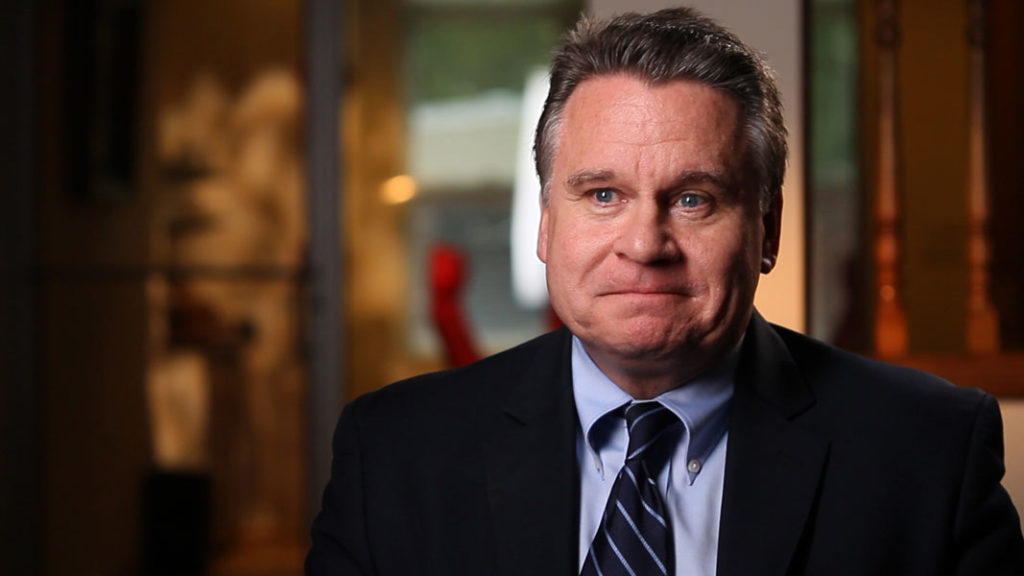Smith: Stopping coronavirus pandemic and finding a cure, vaccine must be our highest priority—no matter the cost

Smith: Stopping coronavirus pandemic and finding a cure, vaccine must be our highest priority—no matter the cost
WASHINGTON, DC – As the House tonight passed its second comprehensive bipartisan bill to combat the coronavirus (COVID 19), Rep. Chris Smith (R-NJ) said that “containing the outbreak, finding a cure and a safe and effective vaccine must be our highest priority—no matter the cost.”
“We must contain the coronavirus pandemic and protect all people, especially those most vulnerable to the disease such as the elderly and those with serious chronic medical conditions,” said Smith, who strongly supported and voted for the measure hours after President Trump declared the coronavirus a national emergency, opening the door for states and local governments to receive additional federal assistance.
Smith said, “The historic public-private partnership announced today at the White House will ensure quicker access to free, reliable testing at several venues including at drive-through testing sites in parking lots at stores including CVS, Target and Walmart. By authorizing massive new testing by private labs like Quest and LabCorp in addition to government-run labs and by FDA’s emergency approval of new detection technologies by Roche, the Trump Administration is significantly expanding the capacity to test.”
Smith pointed out that the bipartisan $8.3 billion coronavirus funding bill signed into law last Friday “boosted our ability to more quickly find a cure and, in the months ahead, a safe and reliable vaccine.”
The new legislation strongly supported by Smith—the Families First Coronavirus Response Act—would provide additional federal assistance to help contain the spread and mitigate the effects of the disease. It passed in a 363-40 vote.
Provisions include:
-
- Free Testing:
- Requires all commercial insurance, Medicare, Medicaid, CHIP, Indian Health service, and TRI-CARE to cover, and impose no cost-sharing for testing diagnosis of COVID-19
- Free Testing:
-
-
- $1.2 billion to help cover the costs of coronavirus testing, including $142 million to eliminate copay requirements for servicemembers and veterans
- $1.25 billion to provide emergency nutritional assistance for senior citizens, women, children, and low-income families, including:
- $500m for WIC
- $250m for senior nutrition programs
- $400m for the Emergency Food Assistance Program
- Provides funding and flexibility to ensures low-income students continue to have access to meals if schools are closed
- $15 million for the Internal Revenue Service to administer tax credits
-
-
- Sick Leave:
- Businesses with fewer than 500 employees are required to provide 14 days of paid sick leave to employees affected by COVID-19.
- Additionally, under the Family and Medical Leave Act (FMLA) expansion, COVID-19 affected employees are entitled to up to three months paid leave at two-thirds of the employee’s pay.
- Businesses with more than 500 employees do not have to provide 14 days of paid sick leave.
- Businesses with fewer than 500 employees will receive a 100% tax credit for both types of leave up to capped levels, credited against quarterly payroll taxes
- Additionally, the Secretaries of Treasury and Labor will have regulatory authority to provide flexibility so small businesses under 50 employees are not unduly harmed
- Affected employees include those with COVID-19, under quarantine, caring for someone affected, and with children whose school has closed.
- 6.2% FMAP bump for all states and the territories limited to the duration of the COVID-19 public health emergency and applies to the standard FMAP, not the expansion FMAP, the eFMAP, or the admin FMAP
- Sick Leave:
-
- Unemployment Insurance:
- Provides $1 billion in 2020 for emergency grants to states for activities related to processing and paying unemployment insurance (UI) benefits, under certain conditions
- $500 million would be used to provide immediate additional funding to all states for staffing, technology, systems, and other administrative costs, so long as they met basic requirements about ensuring access to earned benefits for eligible workers
- Full Federal Funding of Extended Unemployment Compensation for a Limited Period. For states that experience an increase of 10 percent or more in their unemployment rate (over the previous year)
- Unemployment Insurance:
Noting the serious negative impact that the coronavirus is and will likely have on the economy, Smith said: “And it’s critically important that we work to save jobs and assist businesses that may falter or fail.”
“In retrospect, the President’s barring of non-U.S. citizens who recently visited China from entering the United States likely had a positive impact on containment—and at the very least, bought us some time to ratchet up our response. Health-related travel bans—now it’s Europe—are a major tool in the fight to contain the virus.”
The U.S. Senate is expected to consider the House-passed legislation next week.
For more information on the coronavirus go to Coronavirus.gov.
|
According to the HealthCare Institute of New Jersey, New Jersey’s life sciences community is responding to the coronavirus outbreak on multiple levels. Its biopharmaceutical and medical technology company members are directing expert scientific resources to the effort to create a vaccine and develop therapies. Companies also are contributing significant humanitarian aid to patients, communities and governments in need. Below are some recent activities by HINJ member companies. Vaccines and Antiviral Medicines
|








